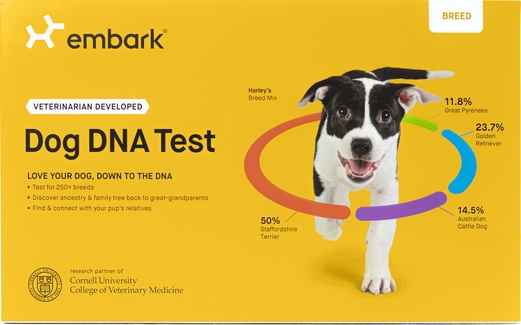There are millions of dog owners worldwide who have no clue about the true breed of their dog. Most will guess based upon the dog’s common behavior and physical traits. But not because you have a dog as playful as one breed and looks nearly like a particular breed means it is that breed of dog. Most guesses as to what the dog breed really is mostly wrong. With a Dog DNA Test, there is no second guess and spelling. You get the accurate results and can answer with certainty as to what your dog breed really is. So the next time someone walks up to you and says your dog is not purebred or hybrid, you have science to back up your accurate response.
2. Identifying Genetically Health Problems.
DNA testing for dogs falls into two, potentially related categories – breed identification and identifying potential disease-causing mutations. Identifying a dog’s breed make-up with a DNA test may point to an increased likelihood of particular conditions developing in the future but is certainly not definitive. On the other hand, tests for specific genetic mutations, some of which are now being included in over the counter dog DNA test kits, are more predictive. This helps dog owners to understand much more about the animal’s health and to have preparation in mind as to any genetically health risk and possible immediate and best solutions.
3. Know Ancestry
Who doesn’t like ancestry. Want to know who your dogs grandma and grandpa was? Then you will definitely need to do your dog’s DNA test. Most breed identification tests will trace your dog’s lineage up to its great-grandparents. You can also trace the dog’s ancestry on both its mother’s and father’s sides.
While knowing your dog’s family tree is mostly a matter of curiosity, it holds a lot of clues regarding its past. For example, you can use it to trace the geographical journey of the dog’s ancestors. Embark’s test for example can even trace your dog’s genetics to the wolf.
4. Physical Traits
Dogs come with all sorts of physical traits. Some are chocolate, others black and others a deep reddish hue. Physical traits are largely determined by genetics. From the breed alone, you can roughly predict what a pup is going to look like when it grows up.
But a study of the DNA provides a more precise snapshot of the physical traits your pup and its offspring will acquire. For adult dogs, a DNA test provides an explanation of why it looks the way it does and what you can expect with future offspring.
5. Future weight and body size
Pet obesity has been rising in the last several years. In 2016, it was estimated that 58% of dogs are either overweight or obese. For most pet owners, you will find that the weight increase happens without them realizing it. They feed the dog high-calorie food without considering its effect. A DNA dog test can help lower these statistics. By studying certain genes, Wisdom Panel and Embark provide their customers with weight and body size predictions



 RSS Feed
RSS Feed



